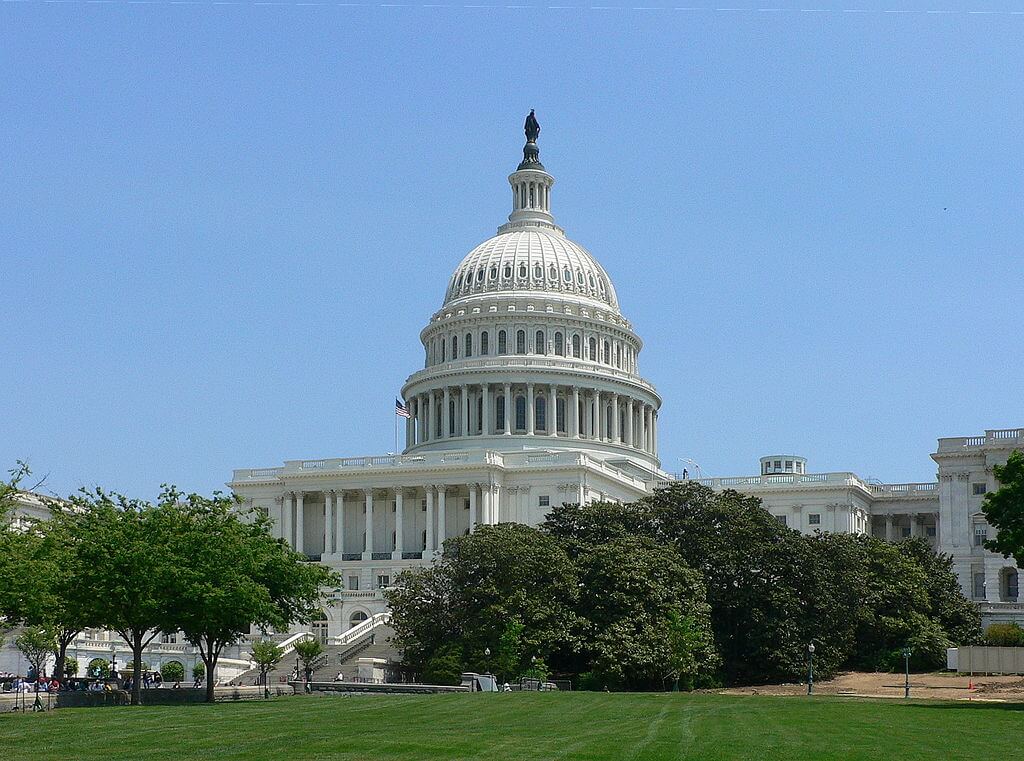U.S. Senate to try again on voting rights in September, following summer recess

WASHINGTON — U.S. Senate Majority Leader Chuck Schumer is planning to bring a comprehensive voting rights package to the Senate floor for a vote when the chamber returns from recess next month.
Schumer, a New York Democrat, said Wednesday that the Senate will take up a compromise version of the voting and elections bill, S.1, known as “For the People Act,” as the first piece of legislation in September’s session.
Schumer’s remarks came after Republican Sen. Ted Cruz of Texas blocked an attempt by Schumer early Wednesday to advance the “For the People Act” for Senate debate, after the Senate in a marathon session had passed the fiscal 2022 budget resolution on a 50-49 vote.
Schumer had asked for what’s known as “unanimous consent” to move ahead on debate on the bill, but Cruz objected, saying that “this bill would constitute a federal government takeover of elections” and a “massive power grab” by Democrats.
Schumer said Democrats must keep trying to pass the elections overhaul, although there’s been no GOP support in the Senate.
“Reactionary Republican legislatures are making it harder for poorer, younger, and nonwhite Americans to vote, while at the same time making it easier for partisan actors to steal an election,” he said on the Senate floor. “Senate Democrats are not going to stand by while this happens. We’re going to fight to protect the sacred right to vote.”
Federal help sought
The recent overhauls of voting laws passed in Georgia, Florida and Montana have alarmed congressional Democrats. They are pushing for federal protections of voting laws to reverse some of the enacted laws that limit the number of ballot boxes for voters, restrict mail-in voting, and ban the distribution of food and water by groups to voters waiting in long lines.
“In America today, we are witnessing the most sweeping and coordinated attacks on voting rights since the era of Jim Crow,” Schumer said.
Since the 2020 presidential election, Republican state legislators have introduced and passed restrictive voting laws at the behest of former President Donald Trump, who continues to spread the falsehood that the election was stolen from him.
As of July, 18 states have passed 30 laws with restrictive voting provisions and Republicans have introduced more than 400 bills with restrictive voting provisions across 49 states, according to the Brennan Center for Justice.
Sen. Joe Manchin III, a West Virginia Democrat, said on the Senate floor that the new version of the “For the People Act” will “be the text of the compromise bill that a group of senators are working on.” That bill text has not been released yet.
Sen. Amy Klobuchar, (D-Minn.), chair of the Senate Rules Committee, has said that Democrats are close to a deal, and touted her work with Manchin, who has voted for S. 1, but voiced his disagreement with it.
“We’re very close to an agreement on that bill,” Klobuchar said during a virtual panel. “We cannot let this moment pass, there are people trying to take away people’s right to vote. We can’t let that happen.”
Schumer said Wednesday that he’s met in recent weeks with Klobuchar and Manchin as well as Democratic Sens. Jeff Merkley of Oregon, Raphael Warnock of Georgia, Alex Padilla of California, Tim Kaine of Virginia, and Jon Tester of Montana, and independent Angus King of Maine.
“We have made a great deal of progress on that legislation,” Schumer said. “We had a very good meeting as recently as yesterday afternoon. And we intend to rally around it.”
Manchin recently wrote an opinion piece in the Charleston Gazette-Mail, where he said he planned to vote against the “For the People Act” because he believes the bill was too partisan. He argued that any voting legislation that the Senate would pass needed to have bipartisan support.
Schumer previously brought S.1 for a floor vote in June, but Republicans blocked the advancement of the bill on a 50-50 vote, so the legislation failed because it did not meet the 60-vote threshold per Senate rules.
The House passed its version of the bill along party lines in early March.
Any voting legislation will need to pass the 60-vote threshold known as the filibuster, and Manchin and Arizona Democratic Sen. Kyrsten Sinema have made it clear they have no intention of eliminating the filibuster.
Redistricting bill
Early Wednesday, Schumer also tried to begin debate on another bill, S.2670, the Redistricting Reform Act of 2021, but was again blocked by Cruz. That bill aims to establish independent commissions to handle each state’s redistricting.
“So, the American people should understand: Republicans just blocked the Senate from even debating legislation to end partisan gerrymandering and make our Congress more representative of the people,” Schumer said.
Meanwhile, House Majority Leader Steny Hoyer of Maryland said in a letter to members that the House “likely will take up” separate voting rights legislation named for civil rights icon Rep. John Lewis when the chamber comes back in session on Aug. 23 to vote on the budget resolution.
The post U.S. Senate to try again on voting rights in September, following summer recess first appeared on Daily Florida Press.
Comments
Post a Comment